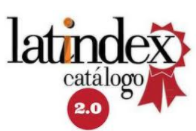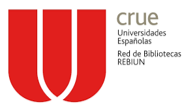Blurred lines:
the influence of Iran and Saudi Arabia in Lebanese internal politics
DOI:
https://doi.org/10.35305/cc.vi126.46Keywords:
Lebanon, Iran, Saudi Arabia, Foreign Policy, Penetrated SystemAbstract
Between 2014 and 2016, the Presidency of the Lebanese Republic was vacant. The Kingdom of Saudi Arabia and the Islamic Republic of Iran played an important role in the country in crisis, in a context in which both emerging regional powers are fighting for its control. But, this influence in Lebanon is not always directly implemented, but through two political parties: the Future Movement, which is run by the Hariri dynasty and represents mostly the Sunnis, and Hezbollah, the most influential Shiite faction, which has a military wing. At the same time, the game of these regional powers in Lebanon is tied to another extreme situation in the Levant: the conflict in Syria. Lebanon is thus consecrated as a "Penetrated PoliticalSystem", in which the differences between local, regional, national and international politics become blurred.
Downloads
Downloads
Published
How to Cite
Issue
Section
License
Copyright (c) 2020 CUPEA Cuadernos de Política Exterior Argentina

This work is licensed under a Creative Commons Attribution-ShareAlike 4.0 International License.
Aquellos autores/as que tengan publicaciones con esta revista, aceptan los términos siguientes:
- Los autores/as conservarán sus derechos de autor y garantizarán a la revista el derecho de primera publicación de su obra, el cuál estará simultáneamente sujeto a la Licencia Creative Commons Reconocimiento-NoComercial-CompartirIgual 4.0.
- Los autores/as podrán adoptar otros acuerdos de licencia no exclusiva de distribución de la versión de la obra publicada (p. ej.: depositarla en un archivo telemático institucional o publicarla en un volumen monográfico) siempre que se indique la publicación inicial en esta revista.
- Se permite y recomienda a los autores/as difundir su obra a través de Internet (p. ej.: en archivos telemáticos institucionales o en su página web) antes y durante el proceso de envío, lo cual puede producir intercambios interesantes y aumentar las citas de la obra publicada.
















